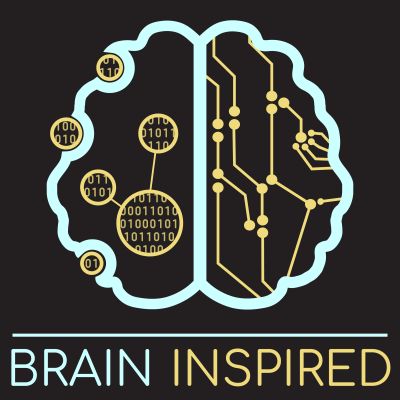Neuroscience and artificial intelligence work better together. Brain inspired is a celebration and exploration of the ideas driving our progress to understand intelligence. I interview experts about their work at the interface of neuroscience, artificial intelligence, cognitive science, philosophy, psychology, and more: the symbiosis of these overlapping fields, how they inform each other, where they differ, what the past brought us, and what the future brings. Topics include computational neuroscience, supervised machine learning, unsupervised learning, reinforcement learning, deep learning, convolutional and recurrent neural networks, decision-making science, AI agents, backpropagation, credit assignment, neuroengineering, neuromorphics, emergence, philosophy of mind, consciousness, general AI, spiking neural networks, data science, and a lot more. The podcast is not produced for a general audience. Instead, it aims to educate, challenge, inspire, and hopefully entertain those interested in learning more about neuroscience and AI.
https://braininspired.co/series/brain-inspired/
BI 171 Mike Frank: Early Language and Cognition
Support the show to get full episodes and join the Discord community.
Check out my free video series about what's missing in AI and Neuroscience
My guest is Michael C. Frank, better known as Mike Frank, who runs the Language and Cognition lab at Stanford. Mike's main interests center on how children learn language - in particular he focuses a lot on early word learning, and what that tells us about our other cognitive functions, like concept formation and social cognition.
We discuss that, his love for developing open data sets that anyone can use,
The dance he dances between bottom-up data-driven approaches in this big data era, traditional experimental approaches, and top-down theory-driven approaches
How early language learning in children differs from LLM learning
Mike's rational speech act model of language use, which considers the intentions or pragmatics of speakers and listeners in dialogue.
- Language & Cognition Lab
- Twitter: @mcxfrank.
- I mentioned Mike's tweet thread about saying LLMs "have" cognitive functions:
- Related papers:
- Pragmatic language interpretation as probabilistic inference.
- Toward a “Standard Model” of Early Language Learning.
- The pervasive role of pragmatics in early language.
- The Structure of Developmental Variation in Early Childhood.
- Relational reasoning and generalization using non-symbolic neural networks.
- Unsupervised neural network models of the ventral visual stream.
